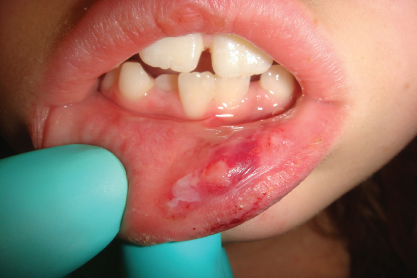Dental treatments often requires the use of local anesthetic aka “freezing” to ensure your child’s comfortable care. However, the feeling of local anesthetic is often strange and disturbing to kids, and they will bite their lip or cheek as they try to explore this new sensation, or lack thereof. During this period of numbness, it’s crucial to keep a watchful eye on them to prevent any accidental biting, chewing, or scratching of these temporarily numbed areas.
To avoid complications, it’s wise to delay reintroducing solid foods until the numbness completely subsides. Opt for soft snacks that are gentle on the mouth, such as Jell-o, frozen yogurt, milkshakes, or smoothies. Preferably, feed these snacks with a spoon rather than a straw to minimize any sucking actions that might aggravate the numb areas.
We find the use of pop-sickles to be very helpful in making the numbness more comfortable to tolerate and in distracting kids from chewing on their lips and cheeks.
In the event your child accidentally bites their cheek, tongue, or lip, swelling may occur and can increase over the next few days, a scenario more common in children under six. A soft scab may develop, appearing as a yellowish-white plaque or resembling a large ulcer. This formation is a natural aspect of the healing journey inside the mouth, with the lesion typically resolving within 7-10 days.
In extreme cases, it is possible for children to chew their lip to the point of leaving a scar, although this is exceptionally rare.
Maintaining cleanliness is important. Encourage your child to brush their teeth as they normally would, taking extra care around the sensitive area. For management of discomfort, children’s Tylenol or Advil can be used.
By following these guidelines, you can help ensure a smoother recovery for your child post-dental treatment, minimizing discomfort and preventing the common yet troublesome issue of lip biting.


